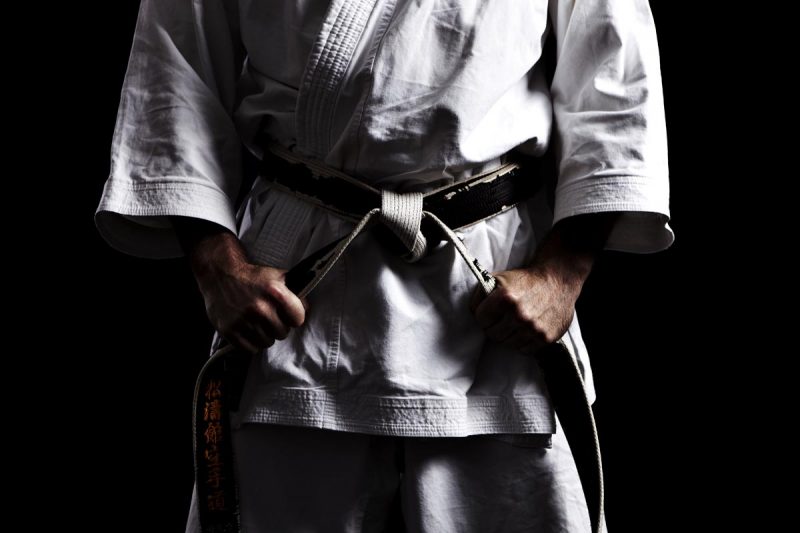Loving Conflict


by Ted Esler
I had just driven from Sarajevo, Bosnia, to Bled, Slovenia. It was 1997 and the roads were still manned by checkpoints, NATO, and long border crossings. What would now take about six or seven hours, back then was almost double that. In the car with me were a couple of my kids and my co-worker, Gary. He and I had made the move into post-war Bosnia together. I loved him like a brother and we had enjoyed the day as much as one can given the circumstances.
When we finally arrived, late at night, tired, stiff, and ready to get out the car, we stepped up to the registration desk to get our hotel rooms. The clerk informed us that while I had a room, there was no reservation for him. His nostrils flared and his chin dropped down to his chest. He turned to me and said, “It was your job to get a room reserved for me.” It was accusatory and he was angry. I responded poorly, by saying, “Well, I am not sure about that, but you are an adult, aren’t you?” and so went the conversation. The clerk, with astonishment at the speed at which our conflict erupted, stopped us with a raised voice. Astonished at myself, I stopped in mid-sentence. She had a room. We both stalked off angry and hurt.
About 30 minutes later, after I had impeached Gary’s reputation to my wife, there was a soft knock on the door. I flung open the door and there was Gary, crying. Immediately, a sense of grief enveloped me for what I had done. I started crying as well and we hugged each other. He said, “I am so sorry,” and I was saying, “No, I am so sorry,” and we were both trying to smile and not cry but we couldn’t. In that moment, I knew how much Gary meant to me. And how much I meant to him.
Loving conflict? Does that sound like an oxymoron? Or maybe just moronic? I don’t think so. In fact, I believe that resolving conflict in a healthy way is a part of God’s plan for each of us to grow in our faith. The Gospel itself is a resolution of conflict. Certainly, unhealthy conflict is destructive and it can be utterly destructive. But the opposite is also true: conflict that is handled in a godly, mature way can be a life-giving blessing.
Conflict Builds Relationships
Jesus said, “Blessed are the peacemakers, for theirs is the Kingdom of God” (Matthew 5:9). Peace comes after conflict has been dealt with in the right way. Blessing follows. My conflict with Gary was something he and I talked about for years afterward. He would look at me and ask, “Did you make the reservation?” and then break out in a big smile. I would sometimes ask him if he was an adult. Joking about it after the fact was possible because we both experienced forgiveness together. We were better friends for it and blessed because we had weathered this conflict together.
When coaching missionary teams, it is helpful to trace the lifecycle of a typical team. The stages are forming (in which the team is pulled together), storming (a time for conflict and role identification), norming (when the team emerges from internal conflict), performing (when the team focuses on the task they were given) and reforming (when members come and go).1
My experience is that very few teams reach the performing stage. If you think back over your own involvement with teams, you might be able to come up with only one or two instances of a high-performance team. Why is this? Many teams get bogged down in the storming that is necessary before they can build the trust necessary to work together unselfishly.
One reason that storming on teams is difficult is that many people have not learned how to have healthy conflict. When conflict appears, they may avoid it, become angry or aggressive or simply walk away from the team. Sometimes these conflicts can go on for years, never seeing the light because the participants are unwilling to experience the risk that confrontation brings. Another reason is that leaders are not able to create trust through their own openness to other’s ideas, motivations, and plans. They do not foster an environment of healthy conflict apart from personal insecurities.
Those that stick it out and work through the conflict will experience team life in a way that is empowering and can create success for the team members. Conflict, like any other contact sport, takes practice.
Conflict is Necessary for Good Decisions
Patrick Lencioni has written that the fear of conflict is a primary team dysfunction. He states, “the desire to preserve artificial harmony stifles the occurrence of productive ideological conflict.”2 There is a lot in this little sentence. “Artificial harmony” suggests that the harmony is not real because there are issues there not being discussed. “Productive ideological conflict” refers to conflict that is not personal but a disagreement about something objective.
Without healthy conflict, the pertinent issues cannot be discussed. In fact, conflict unlocks a range of things that help teams come up with the best decisions. Here are some things that conflict can do:
- Get the best ideas out on the table
- Create new questions and cause us to reconsider answers we have already given
- It can force creativity into situations
- Generate action and give people motivation to change
- Make people open up in ways they otherwise would not
Most of us have heard of the concept, “Team of Rivals,” popularized by historian Doris Kearns Goodwin’s book of the same title. The author describes the team assembled by Abraham Lincoln following the politically brutal presidential election of 1860. His cabinet was filled with his opponents. This team of Stanton, Chase, Seward and Bates had thrown sharp elbows at each other in the proceedings year, jostling for control of the emerging Republican party. Even after being pulled together they experienced both private and public conflict with each other. Yet, this conflict gave Lincoln the robust environment in which many difficult decisions were made.
Unfortunately, human nature compels us to build “teams of clones.” We like to work with the people most like us. Look around you; how alike are the various members of your team? For most of us, our primary teams are made up of people much like ourselves.
To be sure, good decisions come out of the right sort of conflict. If the conflict gets stuck in the personal, then the larger issues the team may be trying to solve can be lost. However, within Kingdom relationships, personal conflicts can often be the greatest areas of advance. So, while conflict is admittedly difficult it can produce some of the best outcomes.

Conflict Shapes Our Character
Without conflict, our character would not be tested. Conflict sets the stage for us to act and react with others.
How we handle conflict is a reflection of our relationship with God. Paul challenged us deeply when he wrote, “Do nothing from selfish ambition or conceit, but in humility regard others as better than yourselves.” Nowhere is this idea of selflessness more challenged than in the midst of serious conflict. The extent to which we can have Christ’s heart in the midst of conflict is a good indicator of our Christlikeness. When first confronted or challenged by a position we oppose do we consider, in humility, the other’s position?
I spent over ten years in training to obtain a black belt in Karate. One of the principals I learned was about our natural reaction to getting pushed or shoved. If I were to reach out and shove you, your first response would be to try to stand firm and oppose the force I was applying (you can try this if you want—just don’t get yourself in trouble!). We automatically push back. Once one learns not to push back, but to give way, many opportunities for self-defense present themselves. Learning to control that initial reaction is hard because it is a reaction that requires no thought. We just do it.
What is your natural instinct when you get “shoved” in a conflict? For most of us, learning to control that initial reaction can unlock many pathways to resolving the problem. Just like a physical “shove”, our initial response is to push back when we feel attacked. One part of maturing in Christ is overcoming this urge, “be quick to hear, slow to speak, slow to anger” (James 1:19).
Conflict challenges us to set aside our personal agenda for somebody else’s agenda. Even if the result of our conflict is compromise we have the opportunity of giving way to somebody else. This is particularly important for leaders to understand and practice. Leaders with credibility are those whose followers know that the leader listens and considers their views, particularly over a contentious issue.
When we think of people of great character they are people who have weathered conflict; Moses, Joseph, and David come to mind right away. Even our contemporary stories are dominated by character building conflict. Hillenbrand’s Unbroken is a great book because it is about how conflict molded Louie Zamperini’s life. He overcame both physical hardship and the personal hatred of his enemies. Ultimately, alcoholism and its consequences led him to surrender his life to Christ. That’s one example of many stories in which conflict shapes the person into a hero.
In fact, there is no great story without great conflict.
Can You Learn to Love Conflict?
Do you want to have strong relationships, good decisions, and a deeper character? Then learn to embrace and love conflict. Learn how to separate the personal from the important, fight for the right things and give way on the minor issues. Embrace the peacemaker within you in obedience to Christ while not sacrificing those things upon which no ground should be given. Become an expert conflict resolver is a lifelong commitment that brings incredible riches in Christ.
Dr. Ted Esler is President of Missio Nexus. He holds a PhD in Intercultural Studies from Fuller and a Masters in Theological Studies from Heritage Seminary.
References:
- Bruce W. Tuckman, “Developmental sequence in small groups.” Psychological Bulletin 63, no. 6 (1965): 384. The fifth stage, reforming, was added by the author.
- See http://www.tablegroup.com/books/dysfunctions/ for this quote and a more extensive discussion regarding the need for conflict in decision making.





